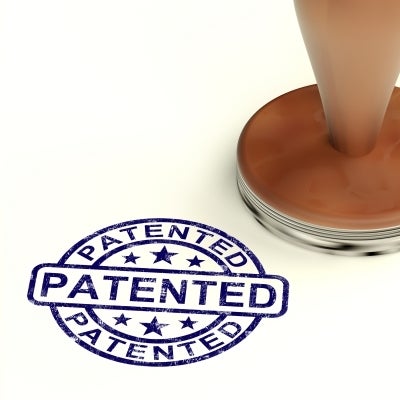For centuries, entrepreneurs in the United States relied on a unique patenting system that granted protection to ideas and inventions from the moment of creation.
The system, known as “first to invent,” was unique, as most other countries employ a “first to file” system that grants intellectual property protection to the party that files for a patent. And it no longer exists here, as the final piece of the Leahy-Smith America Invents Act (AIA), signed into law in September 2011, took effect March 16, converting the U.S. patent system to “first to file.”
The implications are greatest for entrepreneurs and startup companies, according to local experts who regularly deal with patent law.
Erik Heels, a Maynard patent attorney, said his clients were scrambling to submit applications in the days before the new system took effect. March 15 was “the single busiest day in the history of (the firm’s) 12-plus years,” he said.
Heels does not favor the conversion to a first-to-file system, saying entrepreneurs with original ideas stand to lose, while large companies with big legal budgets for aggressively filing patents will come out on top.
“It’s the worst change to patent law in my lifetime,” Heels said.
The intent of AIA was to reform the patent system to reduce a backlog of applications, provide more funding for the U.S. Patent and Trademark Office, and align the system with those in other countries. It’s the first major overhaul of U.S. patent law since 1952.
But according to Heels, the risks to fledgling startups with original ideas outweigh the benefits.
He isn’t alone in his skepticism.
Risk From ‘Patent Trolls’
From an entrepreneur’s perspective, the new law means deciding between spending on product development or paying legal fees related to patent applications.
Jon Radoff, a Southborough-based technology entrepreneur who owns a game site, Disruptorbeam.com, said there’s pressure to spend money on patents before products are fully developed under the new system, but that’s not an efficient way to manage startup money.
Entrepreneurs can wait until products are ready for launch to seek patents, Radoff said, but that makes them vulnerable to “patent trolls,” who prey on others’ ideas for profit. Before an inventor has a chance to file a patent application, a troll may beat him or her to the patent office.
Timothy Loew, executive director at the Mass Digital Games Institute (MassDiGI) at Becker College in Worcester, agreed. He said those starting out in the gaming industry — and the software industry in general — need to make financially prudent decisions, as in any small business.
“Do you protect an idea … or do you commercialize it and hope that the resources come in in time to protect it?” Loew said.
Loew believes that seeking advice from a patent attorney is worth it, especially under a new system that grants protection to first filers, regardless of whether another person or business can produce evidence that an invention was theirs to begin with.
Heels, the attorney, said inventors have legal recourse under the new system, but the cost of hiring an attorney is often cost-prohibitive for startups. “It ends up being a non-option for small companies,” he said.
A Different Perspective
To Kevin O’Sullivan, president and CEO of Massachusetts Biomedical Initiatives, a Worcester-based organization that promotes biomedical startup growth, the conversion to a first-to-file system isn’t as significant. He’s actually a tentative supporter of the change, as he thinks it’s very difficult to prove a product’s original inventor.
“The first-to-file system to me makes sense, actually,” O’Sullivan said. But he questions whether patent reform will expedite the process for the biomedical startups he works with closely. Until now, O’Sullivan said patents have languished for years in some cases, hampering new businesses from getting off the ground.
Only time will tell whether patent reform will quicken the process, though one piece of the new law redirects application fees directly to the U.S. Patent and Trademark Office, which may allow the office to bolster operations.
John Rainey, regional director of the Small Business Development Center at Clark University, said patent reform should prompt entrepreneurs to be more wary of tipping their hands to industry colleagues.
If a new business doesn’t have the budget to pursue patents for ideas or products up front, owners must be very careful in the product development phase to float ideas only to investors who are unlikely to take an idea and run to the patent office with it.
Rainey stressed the importance of non-disclosure agreements in particular.
“The best thing to do is go to people you trust,” Rainey said.
______________
Image credit: FreeDigitalPhotos.net.
Read more
Guarding Innovation: ‘First To File,’ Expiring Patents Make IP Protection Legal Priority

